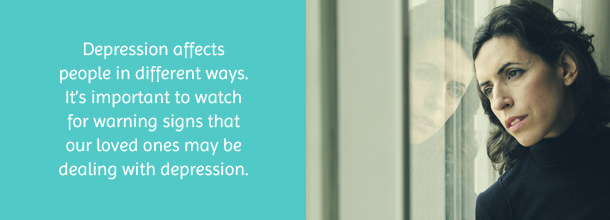
Robin Williams’ recent death has been a loss to so many. He was loved and admired by people around the world. He touched our lives through his talented work in films and stand-up comedy. His work meant so much and for a man who gave the gift of laughter to his audiences, it is saddening to know that behind his bright eyes and warm smile, he was struggling with depression and lost the battle.
Although there is no single cause for suicide, multiple reasons and risk factors can contribute including substance abuse, mental illness or a history of depression. The demographic group that is more at risk for suicide is white, middle-aged individuals. There has also been research linking those with heart disease and cardiac surgery, particularly associated with the cracking of the ribs, to be at risk for a difficult depression. Open-heart surgery has been known to increase the frequency of depression in 20%-40% of heart surgery patients.
Depression affects people in different ways. It’s important to watch for warning signs that our loved ones may be dealing with depression and having thoughts of suicide.
Warning Signs:
- Talking about suicide or wanting to hurt themselves
- Frequently talking about death
- Feeling of hopelessness or worthlessness
- Abrupt change of mood – from sadness to happiness or calm
- Depression symptoms – deep sadness, loss of interest in activities, trouble sleeping or eating
- Calling or visiting people to say goodbye
- Risk-taking behavior such as recklessness
Along with these behaviors, a person may be at higher risk if they attempted suicide in the past. According to the American Foundation for Suicide Prevention, between 20% - 50% of people who commit suicide have tried before.
If you notice any of these signs, it’s critical to quickly connect the person to supportive services. Don’t hesitate to reach out to help someone you think may be depressed or suicidal. Recognizing the warnings signs and risk factors is the first step for suicide prevention.
If you or someone you know is having suicidal thoughts or tendencies, please seek help. For more resources, click here, or call 800-273-TALK (8255).
Sources: NYDailyNews.com; webmd.com

